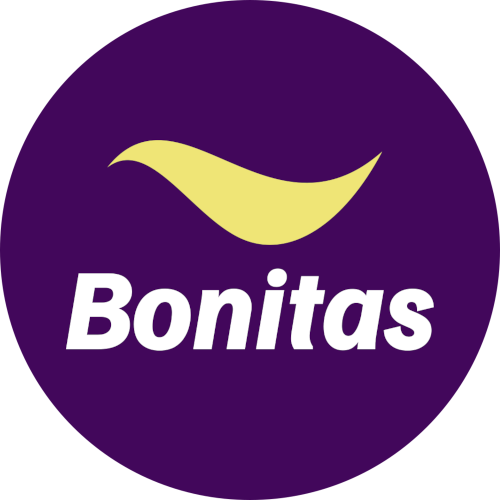As we step into 2025, the human resources landscape continues to evolve rapidly for Indian businesses. With regulatory changes, technological advancements, and shifting workforce expectations, staying ahead of HR trends isn’t just advantageous—it’s essential for organizational success. This comprehensive outlook examines the key HR developments that will shape Indian businesses in the coming year.

The Unified Labour Code Implementation: What Businesses Need to Know
The most significant HR development for 2025 is the continued implementation of India’s consolidated labour codes. These four comprehensive codes—the Code on Wages, Industrial Relations, Social Security, and Occupational Safety—represent the most substantial reform of India’s labour laws in decades.
Key compliance considerations include:
- Revised wage definitions and calculations: The expanded definition of ‘wages’ affects how you calculate various statutory benefits, potentially increasing your compensation costs by 10-30%.
- Modified working hour provisions: Greater flexibility in scheduling is now permitted, but with stricter overtime regulations that require meticulous documentation.
- Enhanced maternity and paternity benefits: Extended leave provisions necessitate updated policies and potential staffing adjustments.
- Streamlined PF and ESI compliance: While administrative burdens are reduced, the expanded coverage means more employees may now qualify for these benefits.
Organizations must conduct thorough policy reviews, update their HR systems, and ensure management teams understand these fundamental changes to avoid compliance issues and penalties.
Technology Integration: HR Trends Beyond Basic Automation
Technology adoption in HR has accelerated dramatically, with AI and machine learning transforming traditional processes.
For Indian businesses in 2025, key technology trends include:
- Predictive compliance systems: Advanced software that anticipates regulatory requirements and flags potential issues before they become problems.
- Integrated HRMS platforms: Comprehensive systems that harmonize payroll, attendance, performance management, and compliance in a single interface.
- AI-driven recruitment and onboarding: Intelligent tools that reduce bias, improve candidate experience, and streamline documentation.
- Data analytics for workforce planning: Sophisticated analysis that helps forecast staffing needs, identify skill gaps, and optimize resource allocation.
The most successful organizations will be those that view technology not merely as an efficiency tool but as a strategic asset for compliance and workforce development.
Evolving Work Models: Balancing Flexibility and Compliance
Remote and hybrid work arrangements continue to influence HR trends and policies in 2025. For Indian businesses, this creates unique compliance challenges:
- Updated labour law interpretations: Regulatory bodies have clarified how existing and new labour codes apply to remote workers, requiring policy adjustments.
- Documentation requirements: Enhanced record-keeping obligations for flexible work arrangements demand robust digital systems.
- Cross-state employment considerations: With employees potentially working across different states, compliance with local regulations becomes more complex.
- Taxation and benefits administration: Remote work arrangements necessitate careful attention to tax implications and eligibility for location-specific benefits.
Forward-thinking companies are developing comprehensive remote work policies that address these compliance concerns while maintaining operational flexibility.
Mental Health and Well-being: A Compliance Imperative
Mental health support has transitioned from being merely advantageous to becoming a regulatory requirement in many contexts.
Key developments include:
- Mental health leave provisions: New regulations establish minimum requirements for mental health-related absences.
- Workplace stress assessment mandates: Regular evaluations of workplace stressors are becoming standard compliance requirements.
- EAP program requirements: Employee Assistance Programs with specific mental health components are increasingly required for businesses above certain sizes.
- Anti-discrimination protections: Enhanced protections for employees with mental health conditions necessitate updated policies and training.
Organizations that proactively address mental health not only ensure compliance but also benefit from improved productivity, reduced turnover, and enhanced employer branding.
Skills Development and Learning: The Compliance Connection
The rapid evolution of technology and business practices has made continuous learning essential. In 2025, this intersects with compliance in significant ways:
- Mandatory upskilling provisions: Certain sectors now require documented skill development programs for employees.
- Learning documentation requirements: More stringent record-keeping for training and development activities is becoming standard.
- Apprenticeship quota regulations: Expanded apprenticeship programs are now mandatory for businesses in specific industries and size categories.
- Government skill development incentives: New tax benefits are available for businesses that invest in employee learning, but with strict documentation requirements.
Companies that develop robust learning ecosystems not only address these compliance requirements but also build more adaptable, competitive workforces.
Diversity, Equity, and Inclusion: Beyond Basic Requirements
DEI initiatives have evolved from being primarily social responsibility concerns to having concrete compliance implications:
- Enhanced reporting requirements: Larger organizations now face more detailed diversity disclosure obligations.
- Pay equity documentation: Systematic analysis and documentation of compensation equity are increasingly required.
- Accessible workplace mandates: Physical and digital accessibility requirements continue to expand, requiring regular assessments.
- Inclusive policy reviews: Regular third-party evaluations of HR policies for unintentional bias are becoming standard practice.
Organizations that embrace comprehensive DEI initiatives not only ensure compliance but also benefit from enhanced innovation, improved decision-making, and expanded talent pools.
Data Privacy in HR: Navigating Evolving Regulations
The protection of employee data continues to be a critical compliance concern in 2025:
- Enhanced DPDP Act implementation: The Digital Personal Data Protection Act now has more specific HR implications, with detailed guidelines for employee data management.
- Cross-border data transfer restrictions: Stricter regulations govern how multinational organizations handle employee information across borders.
- Employee monitoring limitations: New constraints on workplace surveillance require careful policy development and transparency.
- Consent management systems: More rigorous requirements for obtaining and documenting employee consent for data collection and processing.
Successful organizations will develop comprehensive data governance frameworks that balance compliance requirements with operational needs.
Conclusion: Strategic Compliance as a Competitive Advantage
As we navigate 2025, HR compliance should be viewed not as a bureaucratic burden but as a strategic opportunity. Organizations that proactively address these trends will:
- Reduce regulatory risks and potential penalties
- Enhance employer branding and talent attraction
- Improve operational efficiency through integrated systems
- Build more resilient, engaged, and productive workforces
The most successful businesses will be those that align their compliance approaches with their broader organizational strategies, viewing regulatory requirements as opportunities to strengthen their foundational practices.
At Bonitas Consultancy, we’re committed to helping your organization not just adapt to these trends but leverage them for competitive advantage. Contact us to learn how our tailored HR solutions can support your business goals in 2025 and beyond.






